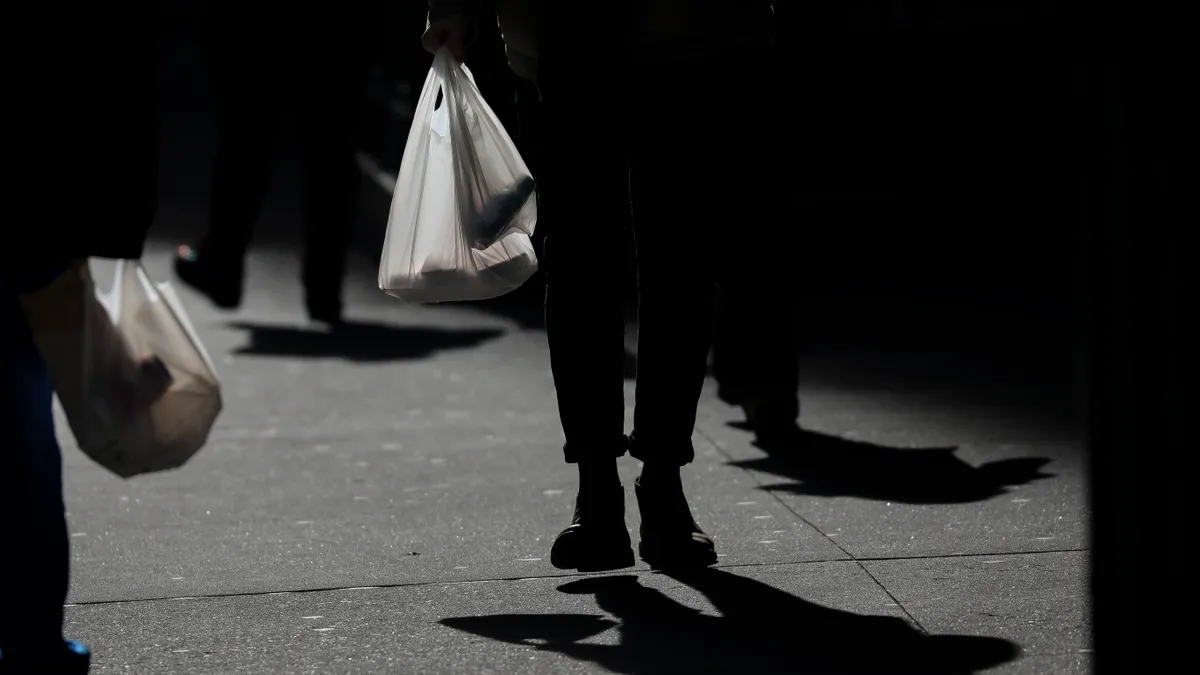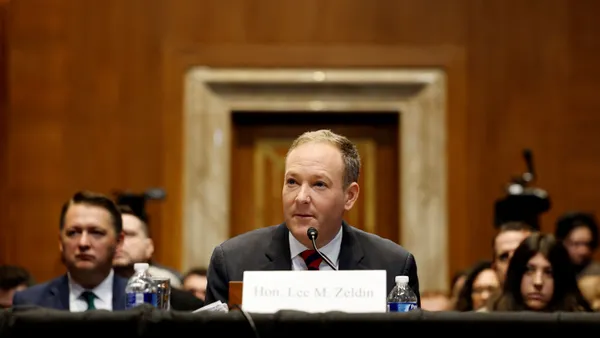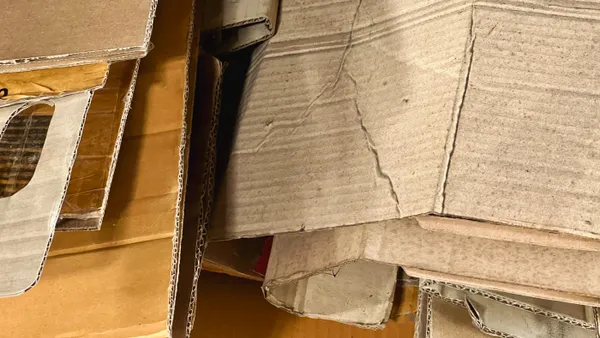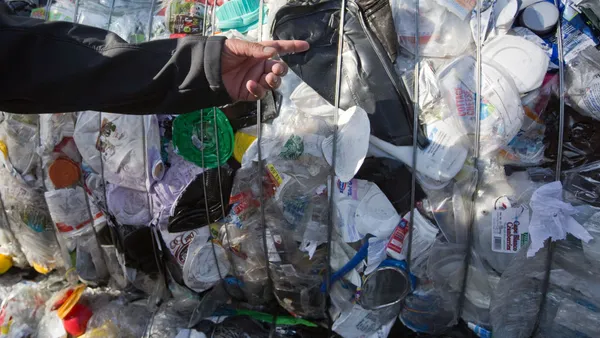Dive Brief:
- Rhode Island Gov. Dan McKee has signed a law banning single-use plastic bags at grocery stores, drug stores and other retail businesses.
- The bill, HB7065, will go into effect one year after the Department of Environmental Management issues regulations for its enforcement or on Jan. 1, 2024, whichever comes first.
- Numerous Rhode Island municipalities already have their own bag bans, but Senate President Dominick Ruggerio, who sponsored the bill, said the new law makes regulations “consistent throughout the state” while also curbing pollution, particularly marine litter.
Dive Insight:
Rhode Island’s state legislature has been attempting to pass such a bill since 2013, but it had not been able to gain traction until now, the Providence Journal reported. Many state residents are already used to bringing their own bags to the store, as 17 Rhode Island communities already have some type of bag restriction.
Darrèll Brown, vice president and director of Conservation Law Foundation Rhode Island, said more than half of the state’s residents live in a city or town with a ban. “This is a long-overdue victory, since many citizens have already asked for this,” he said.
The new law adds consequences for retailers that don’t comply with the ban: They will be fined $100 for the first offense in a calendar year, $200 for the second offense and $500 for each offense after that.
Stores will still be able to offer recyclable paper bags.
The law contains language requiring reusable bags to have “stitched handles” and be designed for 125 uses or more. CLF and other supporters of the law say this wording prevents retailers from replacing thin plastic bags with thicker plastic bags and echoes language used in several other bag ban ordinances throughout the state.
The law exempts some types of single-use plastic bags, including plastic newspaper bags, bags for unwrapped bakery items or prepared foods, and dry cleaning bags.
Rhode Island joins nine other states with bag bans, including other Northeastern states such as Maine, Vermont, Connecticut and New York. New Jersey’s bag ban went into effect in May. Colorado passed its own ban last year, which also repealed its preemption law, a type of policy that prevents municipalities from creating their own, stricter plastic packaging ordinances.
Ruggerio said the ban will help curb plastic pollution in the state’s waterways and ease contamination in recycling loads, a case he has made in previous years he advocated for the bill. “We all know how dangerous plastic pollution is to the health of our oceans and marine life, and how it contributes to climate change,” he said in a statement.











